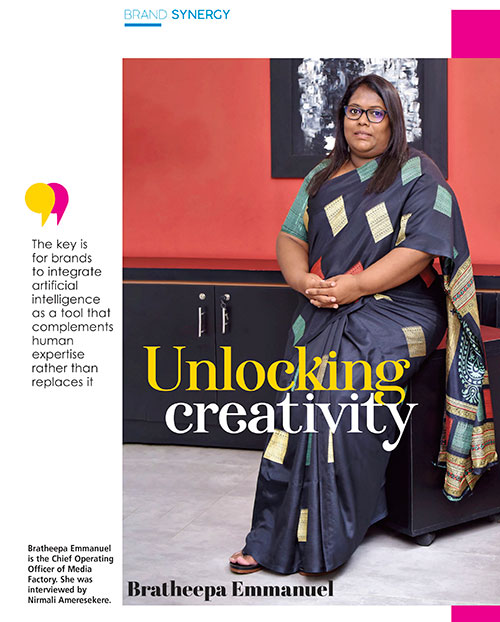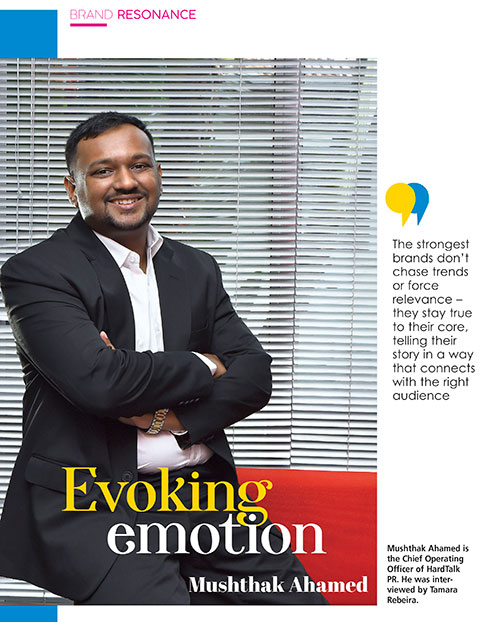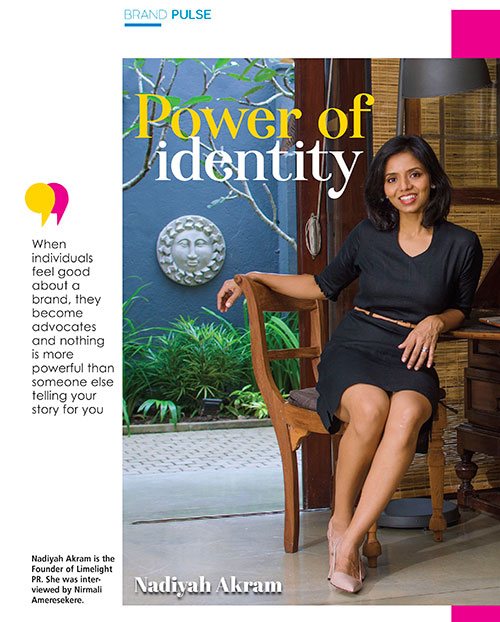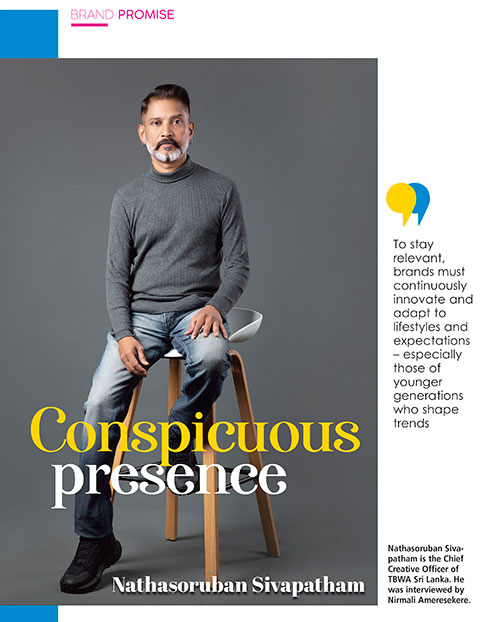BRAND ANIMATION
Attested voice
Laila Gunesekere
Q: How would you define a strong brand – and what key elements contribute to brand building?
A: A strong brand is progressive. Apart from being consistently popular and loved, a strong brand keeps abreast of the times, constantly evolving and consciously catering to changing consumer needs.
Successful brands don’t merely rest on their past achievements, but actively innovate and refine their offerings based on market trends and consumer expectations. They remain consistent in their messaging, yet flexible to remain competitive and compelling.
The key elements of brand building are remaining focussed and true to your brand purpose and experience.
Brand building is the visual voice of a company and a crucial aspect to progress. The key elements in brand building are a clear identification and definition of target audiences, a clear identification and relevant messaging to build long-term brand loyalty.
The key aspect in building a brand is to create a brand purpose and ensure a positive and seamless brand experience. We must understand that a brand is more than a name, logo or colour. It’s your brand sound and voice for which there has to be consistency across every touchpoint.
Q: How important is brand purpose in today’s world? And how can businesses ensure authenticity in their branding?
A: Brand purpose or the ‘why?’ of a company today, more than ever, helps a product or brand connect with potential and existing consumers. Millennials and Gen Z particularly gravitate to brands that stand for something.
A genuine commitment to purpose also instills a sense of pride and motivation among employees.
An existing well-defined brand purpose helps a company form deeper connections with its potential audience, creating loyalty that goes beyond business relationships.
Consumers are more likely to engage with and respect brands that demonstrate a genuine and ongoing commitment to social, environmental or ethical causes. Such causes strike an emotional chord that makes them invaluable to a brand.
Authenticity in branding calls for its champions to ensure the brand’s marketing message aligns with the truth of its products and services. Consumers are intelligent and can recognise when a brand is being insincere or merely using words for their own needs, which is why authenticity is key.
Be transparent: communication must be open and honest. Engage with the community because brands that actively involve their customers and employees in their initiatives create stronger emotional bonds, and reinforce their commitment to purpose driven goals.
Q: With AI and automation becoming more prevalent, how can brands maintain the human touch while embracing digital advancements?
A: Use each aspect effectively and focus on what it brings to the table. Artificial intelligence is a phenomenal time saver and excels in handling large volumes of data with speed. Balance it with human empathy and personalisation.
An intelligent combination of both will make a brand stand out from the competition. This needs conscious awareness and not overdependence on AI.
Artificial intelligence should be used as a starter’s block. Deeply absorb, analyse and make the task your own. Use AI for efficiency – it’s excellent at handling repetitive tasks, analysing and optimising workflows. However, businesses should ensure that customer interaction doesn’t lose the personal touch.
Insist on personalisation – real engagement happens when brands go beyond automated interactions and create human centred experiences. There must be a deep core centred ‘you’ or the message will be devoid of meaning.
Artificial intelligence should support and not dictate brand communication. The human touch is essential to ensure that AI generated work is similar to a company’s brand voice and values.
You are the difference in an AI driven world – without you, every message will sound similar and lack depth.






